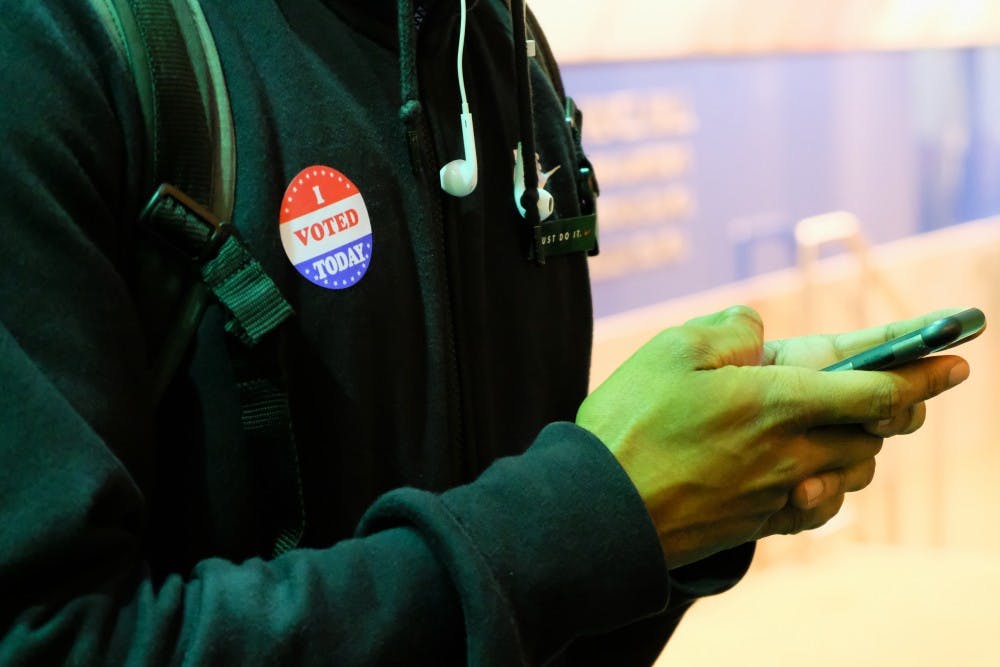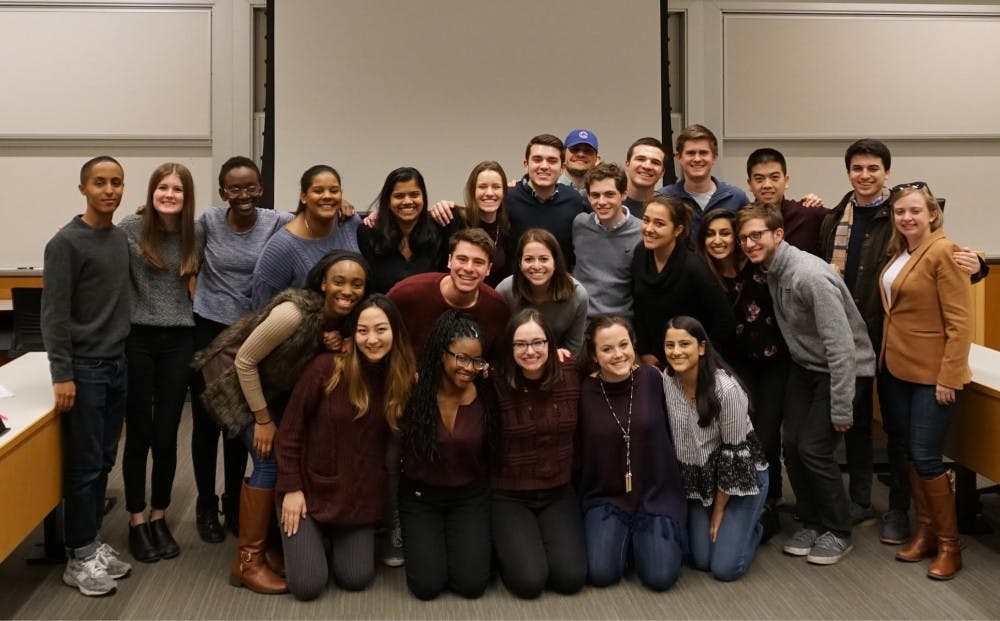
A new NEC amendment prohibits candidates for the Undergraduate Assembly and Class Boards from providing students with the device they use to cast their ballot.
Credit: Son NguyenArmed with laptops, student government candidates often approach students at random in an attempt to win their vote. A new NEC amendment, however, has now banned the practice.
The amendment prohibits candidates for the Undergraduate Assembly and Class Boards from providing students with the device they use to cast their ballot. The amendment was made to the Fair Practices Code and was enacted on Feb. 11 by the Nominations and Elections Committee.
The amendment states that candidates “may not provide the device, including but not limited to laptops, tablets, or cell phones, used to cast any part of the ballot of another voter.”
NEC Chair and College senior Stephen Imburgia said the amendment is an important step in ensuring free and fair elections. He added that without this policy, extroverted candidates benefitted in previous elections, as they were more likely to randomly approach student voters.
The amendment clarifies the existing policy prohibiting candidates from coercing students into voting for them, which was adopted last year, NEC Vice Chair for Elections and College sophomore Kiley Marron said. However, the previous policy still allowed candidates to provide laptops and other devices to students when courting their vote.

The NEC is looking at new ways to publicize elections, and hopes to expand NEC-operated voting booths across campus during voting periods to address the possibility that the new amendment may hurt voter turnout. (Photo from Stephen Imburgia)
Through feedback received from UA leaders in the last semester, the NEC learned that these campaign practices created a “race to the bottom for who could go into the most dining halls and who could give their laptops to the most people,” prompting the NEC to explicitly ban the practice, said Imburgia, who is a former Daily Pennsylvanian beat reporter.
In fall 2018, the NEC held a hearing over potential FPC violations of two freshmen Class Board candidates. During the hearing, the Committee heard evidence that the candidates in question approached a student in their room and set up the online ballot on a laptop for the voter.
Under the existing policy, that did not constitute a violation. But Marron said the hearing was a “wake-up call” to strengthen the enforceability of the policy.
“I think eliminating laptops or other personal devices entirely from these interactions between candidates and voters will prevent a lot of these coercive practices that we were trying to prevent with the original amendment,” Marron said.
To address the possibility that this may hurt voter turnout, Marron said the NEC is looking at new ways to publicize elections, and hopes to expand NEC-operated voting booths across campus during voting periods.

The executive board of the NEC. (Photo from Stephen Imburgia)
UA secretary and College sophomore Mercedes Owens said that the new policy will be helpful in ensuring that all votes will be “valuable and real with very little possibility of coercion.”
Owens said that candidates might have to shift their campaign strategies because under the new policy, they will have to “genuinely connect” with voters instead of “possibly intimidating them.”
UA treasurer and College junior Natasha Menon said that the amendment shouldn’t have an impact on turnout, since “candidates can find innovative ways of reaching out to voters that aren’t coercive.”
Menon also cited the importance of the NEC’s upcoming efforts to tackle voter turnout. Since the NEC is a neutral body, Menon said that elections will benefit from an apolitical effort to get people to vote.
The amendment will have its first impact on student government elections in April, when all of the Class Boards and the Undergraduate Assembly are up for election.
The Daily Pennsylvanian is an independent, student-run newspaper. Please consider making a donation to support the coverage that shapes the University. Your generosity ensures a future of strong journalism at Penn.
Donate






